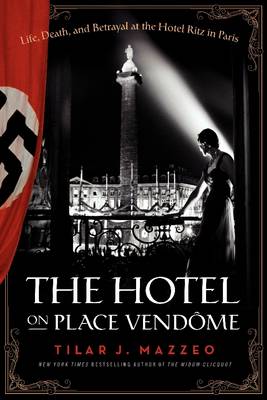When I first bought this book (based on reviews by BL friends) I couldn't wait to get started on it, but RL was busy at the time. In my excitement, I showed it to my mother-in-law, who promptly borrowed it. She returned it quickly, but the buzz had worn off and the book languished in my TBR for a couple of years.
I picked it up this week and happened to read the "other works" list in the front and saw that Mazzeo also wrote The Widow Clicquot, a book I started reading a couple of years ago and put back down because the florid writing was killing me. I almost put this book back in the pile after seeing that, but fortunately, I didn't.
Someone mentioned in their review that this narrative history read like a soap opera; I could definitely see some of that in a few of the chapters, but mostly what I got out of the book was that even amongst the very, very rich there were those that just wanted to get through it with little notice or involvement (Jean Cocteau), those that used the occupation to further their own ends (Coco Chanel), those that treated it as a game (Hemingway) and those who felt they were above it all (Arletty). Interspersed among the glitterati were those that were quietly fighting the good fight under everyone's noses.
But what struck me as slightly hyperbolic before I read the book, became clear by the end: an astounding amount of history originated or passed through the Hotel Ritz during World War II. Mazzeo writes an engrossing narrative describing the highlights (and low) in a structure that mostly makes sense and is easy to follow; a few times her backtracking left me flipping back pages to get back on the timeline, but overall it was a very easy, interesting and absorbing read.
This book certainly gave me an education: Hemingway's competitiveness, Chanel's anti-semitism and was-she/wasn't-she spy status, Edward and Wallis' fascism. But one story was the best: the story of Lieutenant Alexandre Rosenberg. I won't spoil it here, but wow... against astronomic odds... So. very. awesome.
I dinged it 1/2 star because there were some egregious copyediting errors, including one phrase repeated within a sentence. Lots of missing articles, and a few instances of excessive use of a single word in a paragraph or sentence. Really obvious stuff that should have been caught. The author also hints at further developments to be revealed later in the narrative but then never reveals them. (Mazzeo foreshadows that Laura Mae Corrigan faces trouble at the end of the war, after winning two medals for service, but then never mentions her again.)
Overall though, an excellent read; really interesting and one I'd not hesitate to recommend to someone interested in narrative histories.
